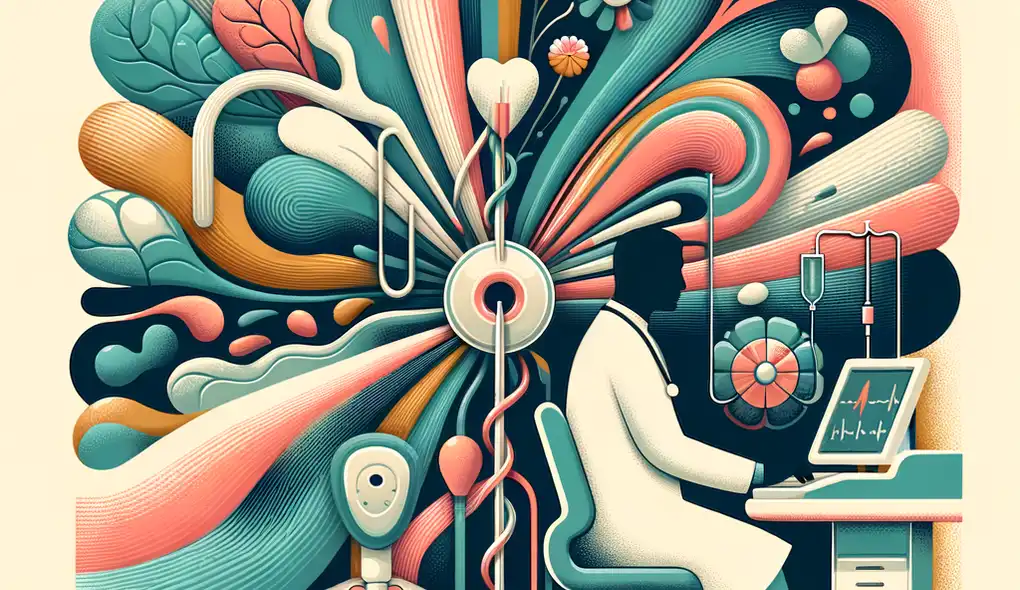Describe a time when you encountered a challenging case and how you handled it.
Interventional Radiologist Interview Questions
Sample answer to the question
One challenging case I encountered was a patient with a complex arterial disease. The patient had severe pain in their legs and required immediate intervention. I collaborated with a team of interventional radiologists and vascular surgeons to develop a treatment plan. We performed an angiogram to assess the extent of the disease and then proceeded with an angioplasty and stenting procedure. The case was challenging due to the complexity of the disease and the need for a multi-disciplinary approach. By working closely with the team and utilizing my skills in image-guided procedures, we were able to successfully alleviate the patient's pain and restore blood flow to their legs.
A more solid answer
I encountered a challenging case involving a patient with a complex arterial disease. The patient presented with severe pain in their legs, which was a clear indication of compromised blood flow. This required immediate intervention, as delayed treatment could have led to irreversible damage. I collaborated with a team of interventional radiologists and vascular surgeons to develop a comprehensive treatment plan. To begin, we performed an angiogram to visualize the arterial system and accurately assess the extent of disease. This was followed by an angioplasty and stenting procedure to restore blood flow and alleviate the patient's pain. The case was particularly challenging due to the complexity of the disease and the need for a multi-disciplinary approach. However, by leveraging my strong skills in vascular and interventional procedures and effectively interpreting radiologic studies, we were able to address the patient's condition successfully. Additionally, my strong communication skills and ability to collaborate with the team were vital in ensuring seamless coordination throughout the entire process. Together, we achieved optimal outcomes for the patient and effectively restored their quality of life.
Why this is a more solid answer:
The solid answer provides specific details about the candidate's skills, the challenges faced, and the teamwork involved. However, it can still be improved by including more information on the candidate's organizational and time-management skills.
An exceptional answer
I encountered a particularly challenging case involving a patient with a complex arterial disease. The patient presented with debilitating pain in their legs, making it clear that their arterial system was compromised. Recognizing the urgency, I promptly assembled a multi-disciplinary team consisting of interventional radiologists, vascular surgeons, and anesthesiologists to ensure comprehensive care. To begin, we performed a thorough review of the patient's radiologic studies, utilizing my expertise in accurately interpreting complex vascular images. This allowed us to identify the specific areas of arterial blockage and plan the intervention accordingly. We then conducted an angiogram, meticulously navigating the delicate arterial networks to map out the disease burden comprehensively. This revealed multiple occlusions and significant stenosis. Subsequently, we embarked on an extensive angioplasty and stenting procedure, strategically addressing each lesion to restore blood flow and relieve the patient's excruciating pain. Throughout the intervention, my strong organizational and time-management skills came to the forefront. I coordinated seamlessly with the team, streamlining the workflow to ensure efficient utilization of resources and minimal downtime. Additionally, my effective communication skills facilitated clear and concise discussions, enabling the entire team to work synergistically and make informed decisions promptly. Our collaborative efforts culminated in successful revascularization, eliminating the patient's pain and restoring their mobility. This case exemplifies my ability to handle challenging situations, integrating my skills in vascular and interventional procedures, interpretation of radiologic studies, communication, team collaboration, and organizational and time-management. Ultimately, the patient's improved quality of life and the team's collective achievements serve as a testament to my dedication to delivering exceptional patient care.
Why this is an exceptional answer:
The exceptional answer provides specific details about the candidate's skills, the challenges faced, and the teamwork involved. It goes above and beyond by including additional information on the candidate's organizational and time-management skills, as well as showcasing their dedication to delivering exceptional patient care.
How to prepare for this question
- Reflect on challenging cases you have encountered in interventional radiology and consider the specific skills you utilized to handle those situations effectively.
- Think about how you collaborated with a team in challenging cases. Highlight your communication and team collaboration skills.
- Consider how you organized your time and resources to optimize efficiency while handling challenging cases.
- Stay updated with the latest advancements and techniques in interventional radiology by regularly attending conferences and participating in continuing education activities.
- Practice discussing challenging cases you have encountered, emphasizing the comprehensive approach and positive outcomes.
- Demonstrate your commitment to continued education and professional development by mentioning any relevant courses or certifications you have pursued.
What interviewers are evaluating
- Vascular and interventional procedures
- Interpretation of radiologic studies
- Communication skills
- Team collaboration
- Organizational and time-management skills
Related Interview Questions
More questions for Interventional Radiologist interviews